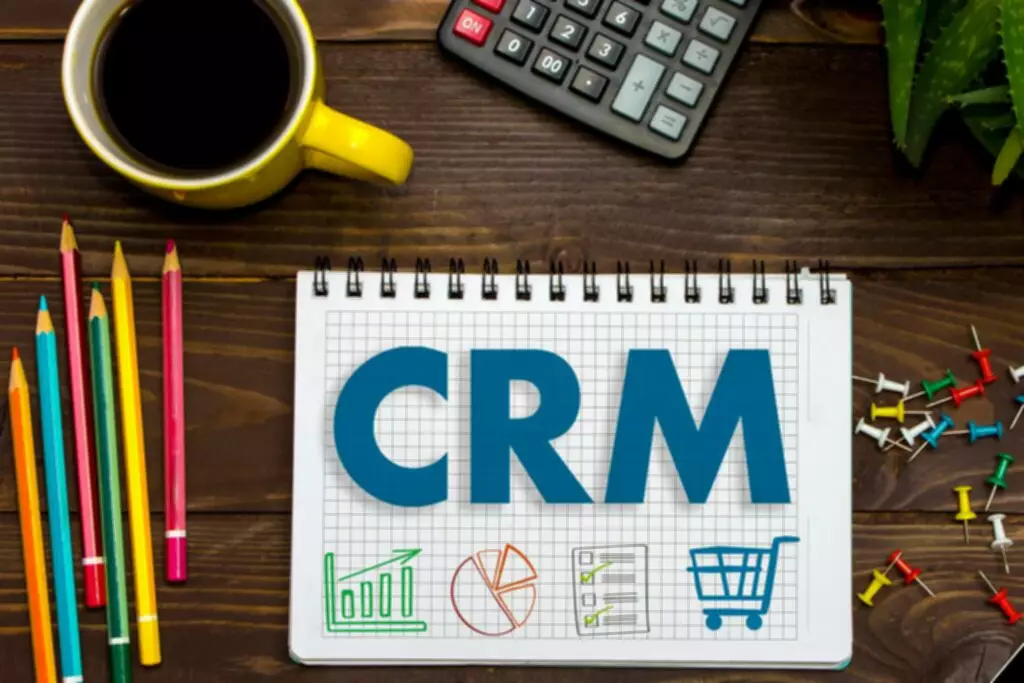Individual investors are back here’s what it means for the stock market
Content
- Individual vs. Institutional Investors
- Foundation Stage – Live Master Class – Live business learning
- The Bankrate promise
- BlockFi Files for Bankruptcy. What It Means for Investors
- Individual investors are back — here’s what it means for the stock market
- What Are the 3 Types of Investors in a Business?
They often use excess cash on hand to allocate towards high-risk investments. Institutional investors, on the other hand, tend to buy or sell in bulk, because they usually have much more money to trade than retail investors. This amount of money gives them access to institutional funds with minimums that put them out of reach for most individual investors. This study examines the investment opportunities available for individual investors in the carbon emissions market. Volume, investment correlations, location of trade, return volatility, and price discovery are examined for the Barclays carbon emissions exchange traded note launched in July of 2008 and traded in U.S. markets.

The value of a company includes many other factors, some of which are intangible and can mean something very different to individual investors. Because while a company may have significant value in the stock market, that doesn’t necessarily mean it should be in your portfolio. To determine a company’s market capitalization , you will multiply the current price of a single share by the number of total shares outstanding (i.e. the number of shares available to be publicly traded).
Individual vs. Institutional Investors
Retail investors purchase securities for their own personal accounts and often trade in dramatically smaller amounts as compared to institutional investors. An institutional investor is an umbrella term for larger-scale investments by professional portfolio and fund managers who might manage a mutual fund or pension fund. The percentage of investors feeling bearish about the stock market is reaching levels last seen during the Great Recession, according to a weekly survey from the American Association of Individual Investors. That negative sentiment could mean that an opportunity is around the corner. Just over three-fifths, or 60.87%, of the approximately 300 investors surveyed reported feeling “bearish,” or that prices will go down, about the market in the seven-day period ending Sept. 22. It’s the fifth time the percentage of bearish respondents broke that 60% threshold since data began being collected in 1987.
In fact, individual investors appeared interested in almost anything else, from real estate to cryptocurrencies, Konstantinos said. Solotar stated, “For a lot of people, BREIT is the first alternative investment they put in their portfolios.” Blackstone now offers a variety of credit, hedge fund and real estate vehicles to individual investors. Blackstone President Jonathan Gray stated that BREIT has the potential to become one of the largest economic contributors to the firm.
P2P lending, or peer-to-peer lending, is a form of financing where loans are obtained from other individuals, cutting out the traditional middleman, such as a bank. Examples of P2P lending include crowdsourcing, where businesses seek to raise capital from many investors online in exchange for products or other benefits. And while Americans gravitated to savings accounts and passive investing in the aftermath of the 2008 financial crisis, the number of households that own stocks has risen since. According to the Federal Reserve’s survey of consumer finances, about 53% of families owned stocks, and 70% of upper-middle-income families owned stocks in 2019. The Reddit community, however, is interested in more than low-priced stocks. To be clear, penny stocks still draw a lot of interest from the Reddit crowd.
Foundation Stage – Live Master Class – Live business learning
The Balance uses only high-quality sources, including peer-reviewed studies, to support the facts within our articles. Read our editorial process to learn more about how we fact-check and keep our content accurate, reliable, and trustworthy. Another statistic that really popped off the page is, by and large, the majority of the people that we surveyed are very satisfied with their advisor. Nearly 75% would recommend their advisor and just 1% report being dissatisfied. Calvasina argued that retail interest in specific stocks is likely to ebb and flow, as it has done over the past year, but probably won’t fade away.
- If that occurs, it could allow Blackstone to participate in the 401 pool, which is the largest vehicle of all.
- There’s a strong possibility the failure of such a large player could result in much stricter regulation for crypto exchanges.
- A business development company is a type of closed-end fund that makes investments in developing companies and in firms that are financially distressed.
- BlockFi gave its users access to loans in U.S. dollars against crypto holdings.
- These investors might invest in currencies, emerging markets, or stocks, all while dealing with a roller coaster of different factors on a daily basis.
The FTX debacle shows that we don’t know what is going on behind the scenes at many crypto platforms. Increased oversight could reveal that other platforms aren’t taking care of customer funds in the way we might hope. The regulatory body must verify the liquidity of the accredited investor, checking that they are indeed in compliance with the requirements.
The Bankrate promise
The institutional investor is not the beneficiary of the earnings from the investment, but the company as a whole act as a beneficiary. We’ve been talking a lot recently about just who is invested in America’s capital markets. U.S. capital markets are where people individually and collectively through pension funds and mutual funds invest their savings to seek of return. They also invest in state and local infrastructure like roads, schools and hospitals, combined their savings fuel economic growth, job creation and their financial futures. A personal investor can be any individual investing on their own and may take many forms.

Those investors who did possess this level of sophistication were afforded the privilege of having the much-prized status of an accredited investor. This move allowed the Government to free up resources spent on the highly-developed entities and individuals whose liquidity is securely established enough to meet any risks of loss. In part two, Bentsen and Broadridge’s Dan Cwenar dive into the findings from an unprecedented new study on the retail investor and share some surprising insights. In addition to managing markets coverage, he writes about stocks, bonds, currencies and commodities, including oil.
BlockFi Files for Bankruptcy. What It Means for Investors
The SEC helps retail investors by providing education and the enforcement of regulations to ensure people remain confident and comfortable investing in the markets. Gordon Scott has been an active investor and technical analyst of securities, futures, forex, and penny stocks for 20+ years. He is a member of the Investopedia Financial Review Board and the co-author of Investing to Win. Considering the low price of OTIC stock, investors will want to be careful about investing in it. It’s not uncommon for penny stocks to see massive drops after undergoing a short squeeze. It looks like investors are doing just that with heavy trading sending OTIC stock higher today.
An individual professional investor is an investor who has the qualification, experience and in-depth knowledge of the financial markets. Just like in the definition of investor, the professional or qualified investor can be a person or a financial institution. As a result, they undermine the financial markets’ role in allocating resources efficiently; and through crowded trades, cause panic selling. These unsophisticated investors are said to be vulnerable to behavioral biases and may underestimate the power of the masses that drive the market.
They are also a major source of capital for companies that are publicly listed on the stock exchange. A retail investor, also known as an individual investor, is a non-professional investor who buys and sells securities or funds that contain a basket of securities such as mutual funds and exchange traded funds . While breakneck and foolhardy trading activity in shares of GameStop Corp. GME, +1.23%has dominated the headlines, unanswered questions remain as to whether a broader resurgence in retail trading will last and what it will mean for the stock market as U.S. benchmark indexes march to all-time highs.
Institutional funds, for instance, tend to have high minimum investments but also come with lower fees. Fortunately, this gap has also narrowed in recent years as index-fund fees have plummeted for individual investors. The act of putting money into a business or organization to earn a profit is called investing. With a small business, an investor takes on the additional risk of making little to no profit as the business may or may not succeed. In the U.S, the Securities Exchange Commission regulates the investment risk in publicly traded companies.
In addition, there are those who put their money into a business in exchange for part ownership in the company. Some also invest in the stock market in return for dividend payments. Futures contracts aren’t as popular among individual investors as stocks and bonds because they are generally harder to analyze and trade. Futures involve leverage, which can sink a whole account in days with relatively small moves. An institutional investor often works by having a large pool of money to invest, either on its own or on behalf of others.
They may have access to investment research that retail investors do not and have financial resources that allow them to conduct their own research. In addition, they might have access to investments individuals do not, such as institutional index funds with very high minimums. These large institutional funds often have lower fees than those available to individual investors. Retail investors look at their investments from a different perspective than institutional investors, which makes some investors hesitant to invest in Blackstone. With a 10-year lockup on traditional buyout funds, such investments aren’t attractive for individual investors that may need to free up cash other than pension funds or other wealth funds.
The last two times were in October 2008 and March 2009, as the U.S. dealt with the collapse of the housing market and its ripple effects across the economy. Before that, the percentage of bearish investors hit this level at two points in 1990. In those scenarios, strong returns for the S & P 500 followed a year later. A glimmer of hope — for those who are patient The survey tracks what is considered a contrary indicator.
Individual investors are back — here’s what it means for the stock market
For example, the board of directors makes the decision-making process more challenging as people are likely to propose different ideas on what trades to make. As an individual investor, you are your boss and the sole https://xcritical.com/ decision maker when it comes to buying and selling shares. By answering a few simple questions, you’ll know whether or not you’re an individual investor, but don’t worry about knowing tax rules related to investing.
What Are the 3 Types of Investors in a Business?
As Blackstone opened up this market, so did other investment firms. While this shift in strategies has been a boon after the financial crisis, it remains to be seen if it will outlast the bull market. Ex-FTX CEO Sam Bankman-Fried lost his entire $16 billion fortune in less than a week after his company filed chapter 11 bankruptcy protection on Friday.
Services
No doubt, day traders who jumped on the GameStop rally in a big way and listened to pleas on Reddit’s WallStreetBets forum to hold the line were left to suffer ugly losses. Some market watchers fear that the bubble-like activity in so-called meme stocks could end up scaring away individual investors, nipping any resurgence in the bud. A shift got under way last year as the coronavirus pandemic took hold. Sequential growth in accounts at brokers such as Charles Schwab Corp.
Mullen (MULN) Stock Dips Ahead of Nov. 30 Deadline
But what we do talk about are the types of returns a client might need to achieve in order to accomplish a specific goal such as retiring early, for example. Closely related to this conversation is conveying the importance of diversification in reducing risk while providing appropriate growth opportunities at the same time. So what we found through this study is that there are four central pillars for living well, in this new retirement.
And if you think about the order of those, it makes sense, right? Most of us want to understand how our purpose can make an impact in the world. And oftentimes the question is, how do we use our finances to do that? That sort of trading feels more like gambling than investing, he said, noting that “frothy” market market maker crm action tends to fade quickly away. BREIT owns mostly apartments and warehouses, which tend to be stable, income-producing properties in a market that shows continued promise for growth. In some recent multi-billion-dollar deals, BREIT bought the MGM Grand, Mandalay Bay and Bellagio Las Vegas casinos.
